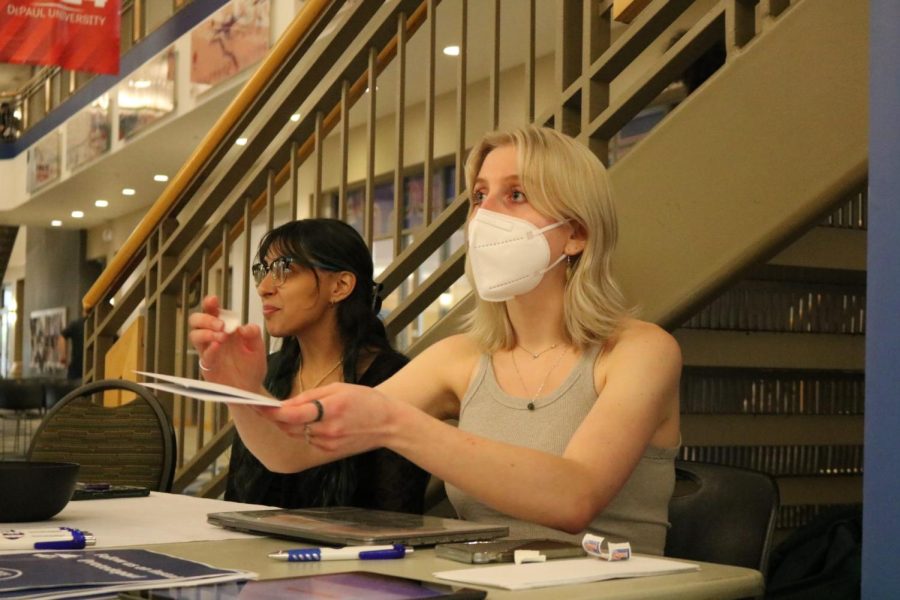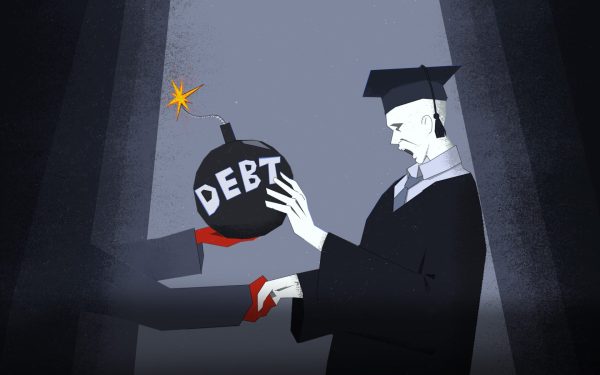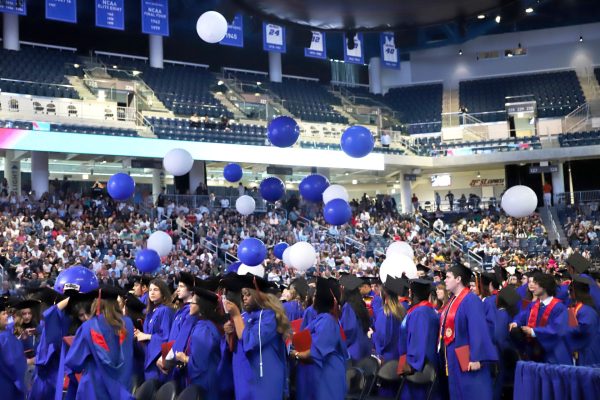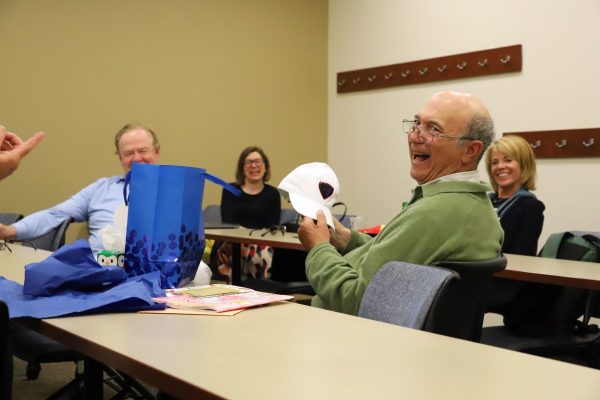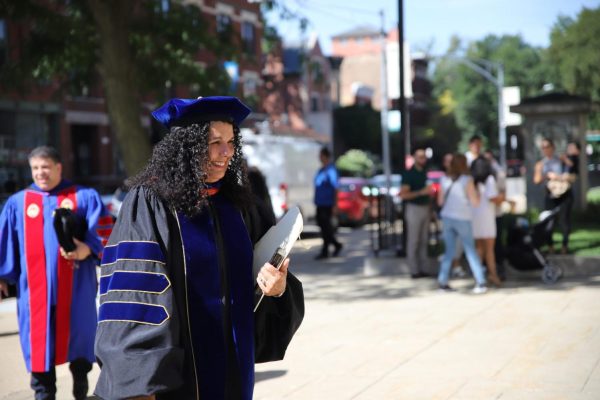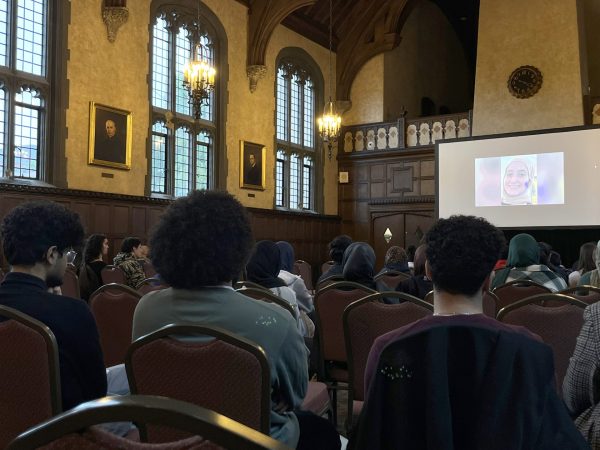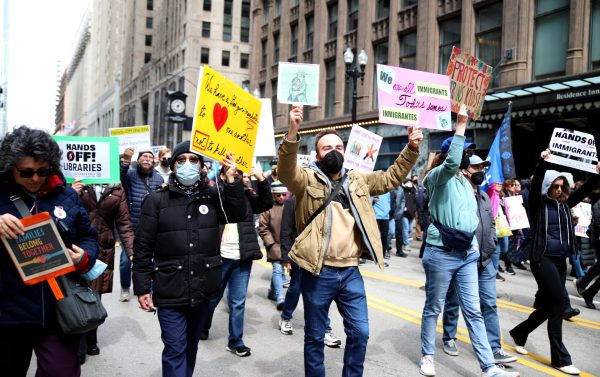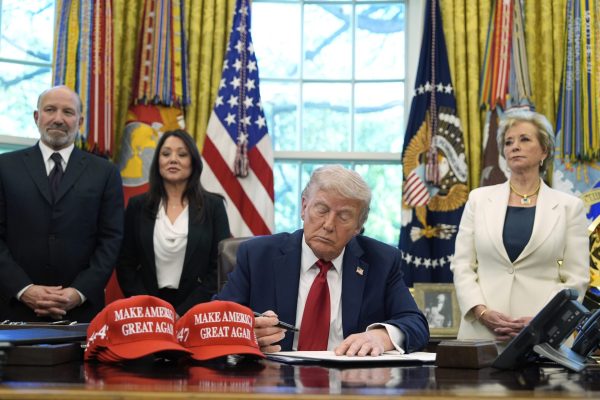Students register to vote with Vote DePaul
Junior Ava Fischer hands an envelope and stamps to a student who is registering to vote. Fischer said some states require people to mail in their absentee ballots.
“I was motivated to become a Voter Registration Genius (VRG) because a lot of people take our
democracy for granted,” DePaul junior and Vote DePaul staffer Jesus OCampo said. “The great thing about democracy is that it gives us a chance to have our voices heard but it only works if we participate in it. So if the only people engaging are older middle class suburban voters, guess whose opinions the country is going to reflect.”
While students are often very vocal in their political opinions, their participation in elections does not often reflect their passion.
During the 2020 presidential election, 55% of youth voters between ages 18 and 29 participated, the highest turnout since 1972 according to Statista. Student-led voter registration drives such as Vote DePaul are helping to keep these numbers high and address the gap in participation across age groups.
Vote DePaul is a DePaul organization that runs voter registration drives through in-person tabling in both the Loop and Lincoln Park campuses.
“Research has shown that students respond much more to fellow students during voter registration and get out the vote campaigns” said Summer Brown, instructor and director of the Institute for Business and Professional Ethics at DePaul and Vote DePaul’s staff sponsor. “We have successfully registered 411 students since June 2022 and 731 students since the beginning of our program in August 2020.”
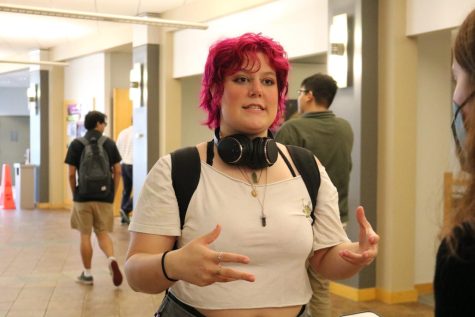
While voter registration drives are one of the most effective ways to increase student voter turnout, the job does not come without its challenges.
“The biggest obstacle I had to overcome was the anxiety I had around public speaking,” OCampo said. “Calling out students just going about their days is incredibly nerve wracking. Eventually though, you fall into a sort of a rhythm and it gets easier.”
Vote DePaul is a non-partisan student organization, so trying to engage with students without engaging in their politics can be difficult. However, their passion for the project outweighs the challenges.
“I have really enjoyed working as a Voter Registration Genius, and it feels great to know that we are helping the DePaul community be more politically engaged,” VRG Giorgia Fiorani said. “Another thing I have noticed is that people think the registration process takes a long time, but in most cases it’s a fairly simple process that only takes about 10 minutes.”
For VRGS, voter registration drives and organizations like Vote DePaul are one of the best ways to exercise their passion for democracy and create political change by doing more than just casting their own vote.
“I have always been passionate about politics in general, but when I heard about Vote DePaul, I thought it would be a great initiative to participate in,” Fiorani said. “Previously, I have worked on voter registration campaigns, and I have really enjoyed that work so I thought working for Vote DePaul would be a great way to continue working in this field.”
While the hyper-polarization of American politics is usually considered dangerous, young voter turnout has had a positive relationship with polarization.
“We know that if we can get students registered, they are 80% more likely to follow through and vote,” Brown said. “We also know that if we can create a first time voter, we have a much higher chance of creating a lifetime voter. The barriers in our system make it difficult for students to know how and where to register, so they just skip voting or they don’t think their voice will count.”
Brown cited two more challenges that pro-voting advocates face: barriers to voting and voter apathy. The New York Times argues that barriers such as opportunity cost and habit formation also can be attributed to low student voter turnout. Young people have less flexible schedules and are therefore sacrificing more when they register to vote and go vote. Both Brown and The New York Times also argued that voters are much more likely to continue to vote once they vote once. This habit formation is a crucial part of voter participation among young people.
“Voting does truly impact our political process, not just at the national level but at the state and local level as well,” Fiorani said. “If you are upset about a current political issue, one of the most important ways to take action is to vote.”


